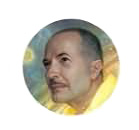Heinlein was part of the Campbellian revolution that transformed science fiction, and love him or hate him he was a towering figure from the late thirties until his death in the late eighties. He was a SFWA Grand Master, he won four Hugos in his lifetime and two retro-Hugos in 2001. He wrote some of the defining works of science fiction, and one zeitgeist book that helped define a generation. He wrote juveniles and books packed with sex, short stories and big fat volumes. Almost all of his work was set in futures with space colonization, much of it in the same future history. Beginning well ahead of the curve on race and gender issues, over the decades of his career he didn’t change as fast as the world was changing. He’s still controversial and still popular—almost all of his work is in print, a quarter century after his death.
Plenty of people don’t like Heinlein, and that’s perfectly fine. But suppose you do and you want something else like that?
Nobody’s writing official Heinlein sequels, but there are a pile of people who are self-identified as Heinlein influenced. There’s Spider Robinson, who was fortunate enough to write a book to Heinlein’s postumous outline, Variable Star. (I think they should have taken the outline and given it to a whole pile of people and let them all write different books based on it. I think that would have been fascinating.) There’s John Varley, who has a Heinlein sect building a starship on the moon in Steel Beach. Gregory Benford calls his novel Jupiter Project a Heinlein tribute. Charles Stross’s Saturn’s Children is directly influenced by Heinlein’s Friday.
If you like the competent hero and the stars for man, you might like other Campbellian science fiction, like H. Beam Piper and Isaac Asimov and Poul Anderson.
If you like Heinlein’s right-libertatian politics, you might want to look at the winners and the nominees for the Prometheus Award.
If you like the way the politics in Heinlein makes you think about how the world could be different, you might like Ursula Le Guin’s The Dispossessed and Samuel Delany’s Triton and Ken MacLeod’s Fall Revolution books.
If you like the story of a boy growing up in the military that you see in Space Cadet and Starship Troopers, you might like Lois McMaster Bujold’s The Warrior’s Apprentice, and Orson Scott Card’s Ender’s Game.
If you like the “growing up in the future” bit of the juveniles generally, you could try John M. Ford’s Growing Up Weightless, John Barnes’s Orbital Resonance, and Alexei Panshin’s Rite of Passage.
If you like the space war aspect of ST, you might like the genre of MilSF and seek out the work of David Weber, David Drake, Elizabeth Moon, and Walter Jon Williams Praxis books and Baen books, who tend to specialise in that kind of books. Joe Haldeman’s Forever War and 1968 are directly in dialogue with Starship Troopers.
If you like the multi-adult families in some of his late books, you might like Donald Kingsbury’s Courtship Rite, M.A. Foster’s Gameplayers of Zan, Marge Piercy’s Woman on the Edge of Time and Summer People, and my Lifelode.
If you like Heinlein’s worldbuilding and telling economy of detail, the way he describes making dinner and gives you a whole world, the way he seems to be writing a historical novel set in the future, try C.J. Cherryh, Lois McMaster Bujold, Melissa Scott, Octavia Butler, John M. Ford, Walter Jon Williams, M.J. Engh, and Samuel R. Delany.
If you like his confiding voice, the way he seems to be saying that this is how the world really is and he’s giving you the inside dope, John Scalzi comes the closest—start with Old Man’s War, or you can get a good feel from his blog. Another writer who comes close with this, though he’s not like Heinlein in any other way whatsoever, is Vikram Seth. I’ve also found that there are some non-fiction writers who do this for me—John McPhee, Jane Jacobs, Claire Tomalin and Steven Pinker.
If you like the way Heinlein’s prose is almost compulsive, each sentence leading inexorably to the next so that you can’t stop reading, the whole can’t-put-it-down thing, I’d suggest John Barnes, M.J. Engh, Anthony Price, and in a completely different way, Patrick O’Brian.
So—other ways in which you like Heinlein? Other authors who are like Heinlein in these ways, or in different ways?
Jo Walton is a science fiction and fantasy writer. She’s published two poetry collections and nine novels, most recently the Hugo and Nebula-winning Among Others. She reads a lot, and blogs about it here regularly. She comes from Wales but lives in Montreal where the food and books are more varied.










